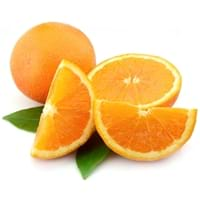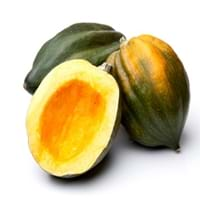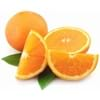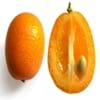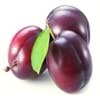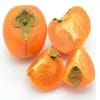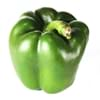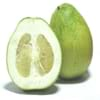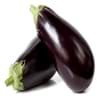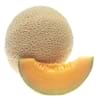Health Benefits
Arthritis treatment, Cancer prevention, Heart care
Anti-inflammatory properties, Arthritis treatment, Regulates Blood Sugar
General Benefits
Anti-inflammatory properties, Cures cough, Cures fever, Digestive aid, Healing of wounds, Maintains healthy cholesterol level
Boosts immune system, Controls blood sugar levels, Digestive aid
Skin Benefits
Anti-aging benefits, Brightens and lightens complexion, Reduces wrinkles, Treatment of dark spots
Nourishes skin, Protects skin from oxidative stress
Hair Benefits
Promotes longer and healthier hair, Protects hair, Rejuvenates scalp, Shiny hair
Prevents hair loss, Promotes longer and healthier hair, Regulates hair growth
Allergy Symptoms
Abdominal cramps, Hives, Itching, Nausea, Wheezing
Asthma, Red rash, Swelling of mouth, tongue or lips
Side Effects
Allergic reaction, Skin rash, Possibly unsafe during pregnancy
Diarrhoea, Vomiting
Best Time to Eat
As a snack in the late afternoon, Eat the fresh ones, avoid mixing with any other foods, don't eat after meal., Morning time (before lunch), Strictly avoid empty stomach
Along with meal, As a snack in the late afternoon, Don't eat after meal, Eat the fresh ones, avoid mixing with any other foods, don't eat after meal.
Vitamin B5 (Pantothenic Acid)
Vitamin C (Ascorbic Acid)
Vitamin E (Tocopherole)
Not Available
Vitamin K (Phyllochinone)
Not Available
Lutein+Zeaxanthin
Not Available
Calories in Fresh Fruit with Peel
Not Available
Calories in Fresh Fruit without Peel
Not Available
Calories in Frozen Form
Not Available
Varieties
Clementine, Dancy, King Mandarin, Murcott, Ponkan, Robinson, Satsuma and Sunburst
Bush Table Queen, Heirloom Table Queen, Festival Hybrid, Early Acorn Hybrid, Table Ace, Ebony and Cream of the Crop
Color
Orange
Dark green, Green-yellow, Orange green
Inside Color
Orange
Yellow
Texture
Succulent
Fibrous
Taste
Sweet-Sour
Sweetish
Origin
South-Eastern Asia
Central America, North America, Unknown
Grows on
Not Available
Vines
Soil Type
Well-drained
Well-drained
Climatic Conditions
Sunny
Cold, Sunny
Facts about
- It is known by another name ' Mandarin'.
- Oil extracted from its peel is used in various skin and hair care products.
- Tangerines is also known as the ‘Christmas Orange’ because it is used to stuff kids' stockings..
- It was named as Acorn Squash for its resemblance to a large ribbed acorn.
- It is said that squash was being grown in Mexico as long as 10,000 years ago.
- It was the first food cultivated by native American Indians.
Spirits
Not Available
Yes
Cocktails
Not Available
Yes
Other Countries
Brazil, Iran, Italy, Japan, Korea, Morocco, Spain, Turkey
Egypt, India, Iran, Italy, Mexico, Russia, Turkey, Ukraine, United States of America
Top Importer
China
Costa Rica
Top Exporter
Spain
United States of America
Botanical Name
Citrus reticulata
Cucurbita Pepo
Synonym
Citrus clementina or Citrus nobilis
Winter Squash
Subkingdom
Tracheobionta
Tracheobionta
Division
Magnoliophyta
Magnoliophyta
Class
Magnoliopsida
Magnoliopsida
Subclass
Rosidae
Dillenhidae
Order
Sapindales
Cucurbitales
Family
Rutaceae
Cucurbitaceae
Species
C. reticulata
Pepo
Generic Group
Citrus fruit
Not Available
Compare Tangerine and Acorn squash
It is important compare Tangerine and Acorn squash as both the fruits have a different nutritional value. Their comparison can be done on the basis of their vitamin and mineral content, calories, benefits as well as characteristics, making it easier for us to choose the best fruit for our diet. Their general health benefits are as follows:
Tangerine Benefits: anti-inflammatory properties, cures cough, cures fever, digestive aid, healing of wounds and maintains healthy cholesterol level.
Acorn squash Benefits: boosts immune system, controls blood sugar levels and digestive aid.
Fruits are also used as a remedy for various hair problems. The hair benefits of Tangerine are: promotes longer and healthier hair, protects hair, rejuvenates scalp and shiny hair and hair benefits of Acorn squash are: prevents hair loss, promotes longer and healthier hair and regulates hair growth. Some fruits are known to cause allergic reactions. The allergy symptoms of first fruit are: abdominal cramps, hives, itching, nausea and wheezing and the symptoms of second fruit are: asthma, red rash and swelling of mouth, tongue or lips. Get sorted Tangerine vs Acorn squash comparison with the help of fruit comparison tool by fruitvs.com.
